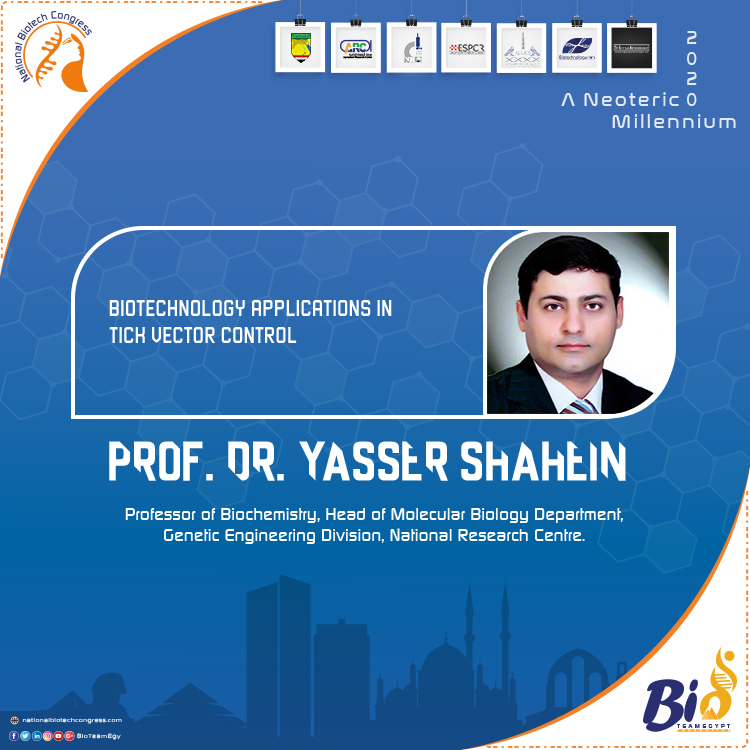
• Biotechnology Applications in Tick Vector Control
Prof. Dr. Yasser Shahein, Professor of Biochemistry, Head of Molecular Biology Department, Genetic Engineering Division, National Research Centre.
The control of tick infestations and the transmission of tick-borne pathogens remain a challenge for farm animal industries in many areas of the world. Traditional control methods based on the use of acaricides, have been only partially successful and the parasites continue to result in significant losses for the animal industry. The use in acaricides has many drawbacks including selection of acaricide-resistant ticks, environmental contamination and more seriously, the precipitation of chemicals in meat and milk. Recent advances in transcriptomics, genomics and proteomics of both vectors and pathogens have enriched our knowledge of the vector-pathogen interactions. Tick-borne pathogens have shown amazing potentials of adaptation from the vector to the mammalian hosts by modulation of the host biological processes through distinctive gene expression mechanisms. Few years ago, vaccines containing the recombinant Rhipicephalus (Boophilus) microplus gut cell surface antigen BM86 and BM95 had been developed. These vaccines have been shown to control tick infestations in the field. These vaccines on the market are all targeting only the cattle tick R. microplus species which is mainly a problem in Australia and in the Caribbean. However, other countries will have to develop their own vaccine against their local ticks because of the genetic variations between species. In this lecture, the promising trials, in identifying novel molecules as a limiting step in vaccine discovery, carried out at the department of molecular biology at the National Research Centre, will be discussed.


